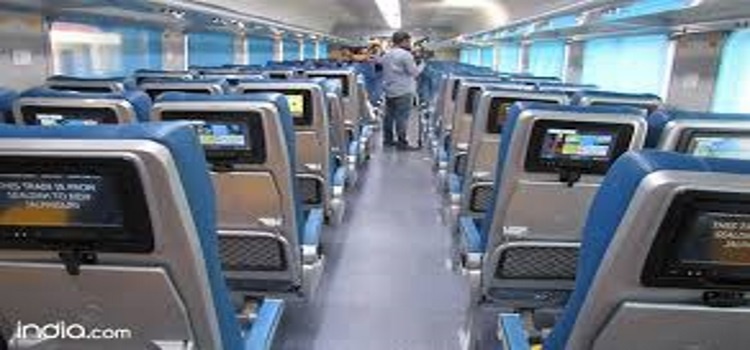
Indian Railways now lets you transfer your train ticket to someone else; Here’s how you can do it



Senior railway official Sanjive Roy has been appointed as the new General Manager of Northeast Frontier Railway.
Roy, a 1981 batch officer of the Indian Railway Service of Engineers (IRSE), took charge of the office on March 6, a statement issued here by NF Railway said on Thursday.
Roy completed M Tech in Structural Engineering from IIT, Kanpur after completing BE (Civil) from University of Roorkee now IIT, Roorkee.
He has undergone Management training in HEC School of Management, Paris; HAG level training at University of Pittsburgh, USA apart from participating in various other courses in IIPA, New Delhi, IRICEN, Pune & RSC Vadodra.
Roy has worked in various capacities in many zonal railways like Northern Railway, New Delhi, Railway Design & Standard Organization, Lucknow and Northeast Frontier Railway, Guwahati.
During his tenure as Chief Engineer/Construction of Northeast Frontier Railway; the entire New Jalpaiguri – New Bongaigaon (280 Km) Gauge Conversion work was completed with opening of 182 km section in one go.
He has also worked as DRM of Secunderabad and Chief Administrative Officer of North Eastern Railway.
As Chief Track Engineer of North Central Railway he had the satisfaction of completing required works for running of the Gatiman Express at 160 kmph in short time.
Prior to joining as General Manager, he was working as the Principal Chief Engineer of North Central Railway, Allahabad.

Union Railway Minister Piyush Goyal on Monday said he wants to run a campaign, ensuring that all women are provided with the benefit of bio-degradable sanitary pads in rural areas.
“We should run a campaign across the country to ensure all women get the benefit of such pads. We have to get economies of scale. We should produce these on a large scale and instead of the expensive pads produced by big companies; women can get it for Rs 1-Rs 1.5,” said Goyal.
Goyal was attending the event and was speaking on the ‘Relevance of Economic Philosophy of Pandit Deendayal Upadhyaya in Today’s World’ as part of the RSS ideologue’s birth centenary celebrations.
Speaking on the campaign, Goyal asserted that he wanted to run a campaign to ensure that every woman in India had access to sanitary pads.
“I have started speaking with Manekaji (Maneka Gandhi) on the issue,” he said.
The Railway Minister also said that he was exploring the possibility of facilitating manufacturing units for cheap and bio-degradable sanitary pads at 8,000 railway stations of the country.
“The railways will help as much as possible, be it providing manufacturing facility on railway stations…such pads can be manufactured on 8,000 locations,” he said.
Goyal further emphasised that self-help groups can manufacture such pads.
“Women themselves can make them in hygienic conditions. Railway stations have terraces where they can work. Machines used for the purpose are also not that expensive,” he added.
Goyal also said the aim should be to provide women a benefit for Rs 100 annually.
“Even if there are three women in the house, the expense is 80 paisa per day for this. Most households will be able to afford it,” he said.
On February 20, Union Minister for Women and Child Development Maneka Gandhi launched a menstrual hygiene campaign.
The objective of the campaign called “#Yes I Bleed” is to create a holistic approach to the issue of menstruation, which is an experience that transcends culture, class, and caste.

To check the widespread increase in human trafficking from northeast India, the railway authorities have taken steps to curb the menace with around 500 children being rescued by the Railway Protection Force (RPF) and 14 traffickers arrested in 2017, an official said on Wednesday.
“In all, 498 children have been rescued by RPF and 14 traffickers were arrested last year. During 2016 and 2015, the RPF has been able to rescue 437 and 206 children respectively,” Northeast Frontier Railways (NFR) Chief Public Relations Officer Pranav Jyoti Sharma said.
“In the face of the widespread increase in human trafficking from northeast India, the NFR and RPF have continued an all-out offensive for combating the menace in railway stations and railway premises. Trains are frequently used for ferrying trafficked children,” Sharma said.
“The NFR and RPF personnel have been able to apprehend a large number of offenders by putting in place foolproof security arrangements in stations,” he said.
Sharma also said that all the five NFR divisions have pressed mobile security squads into service to watch for any suspicious movement in trains and station premises.
The rescued children were handed over to their guardians or to NGOs for proper care and rehabilitation.
The NFR serves seven districts in West Bengal and five districts in north Bihar, besides seven northeastern states, excluding Sikkim.
The CPRO said that the RPF of NFR has also been doing commendable work in detection and recovery of contraband goods.
“The RPF has recovered smuggled goods worth of Rs 5.1 crore in 160 cases last year and arrested 68 offenders. This is much higher than the figures in 2016 where goods worth Rs.3.6 crore were recovered and 134 cases registered.
“This recovery of contraband goods has been possible due to frequent raids, ambush and checks conducted by RPF in sensitive areas within the scope of implementation of integrated security system programmes on the major stations of NFR. CCTV cameras have been installed and control rooms have been set up for real-time monitoring of stations and railway premises,” Sharma added.
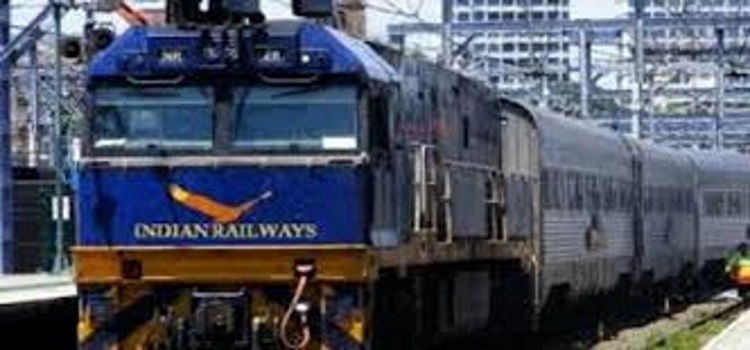
Safety is accorded the highest priority by Indian Railways and all possible steps are undertaken on a continual basis to prevent accidents and to enhance safety because of which during the last three years, the number of consequential train accidents (including accidents at Unmanned Level Crossings mainly caused due to negligence of road vehicle users) have decreased from 135 in 2014-15, to 107 in 2015-16 and further to 104 in 2016-17. In the current year (upto 28th February, 2018) the number of consequential train accidents have further reduced to 70 as compared to 99 in the corresponding period of the previous year.
Security has been identified as one of the priority areas by Railways for strengthening and upgradation. Measures initiated in recent past to strengthen security over Indian Railways include installation of CCTV cameras at railway stations/trains, operationalisation of security helpline 182, and development of security App etc.
Operational measures to strengthen security of passengers include escorting of about 4500 important mail/Express trains daily by Railway Protection Force / Government Railway Police, access control at important railway stations, prosecution of offenders for unauthorized vending/hawking, entry into ladies and reserved compartments, touting of tickets, trespassing, roof travelling, alarm chain pulling etc. under relevant provisions of the Railways Act., detection of passenger related crime, arrest of criminals and handing over to GRP for further legal action.
Close coordination and liaison is maintained by the RPF with GRPs to strengthen security over railways. State Level Security Committee for Railways (SLSCR) have also been constituted for all State/UTs under the Chairmanship of respective Director General of Police/Commissioner of States/UTs for regular monitoring and review of security arrangement for the Railways.
Prevention and detection of crime related to passengers, registration of such cases, their investigation and maintenance of law and order in railway premises as well as on running trains are the statutory responsibility of the State Governments. For this purpose, a separate wing of State Police in the name of ‘Government Railway Police’ (GRP) functions in respective States. Ministry of Railways are supplementing efforts of States in providing security over railways through the Railway Protection Force (RPF).
This information was made available in reply to a question in Lok Sabha today.
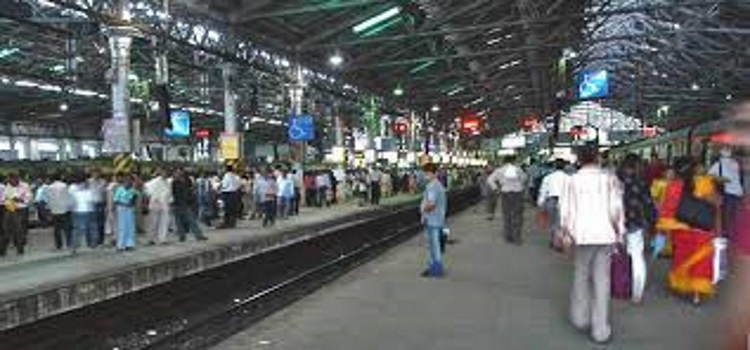
The HIV-testing initiative that was started in the month of December last year by One Rupee Clinic in Mankhurd railway station has further encouraged the Mumbai District Aids Control Society (MDACS), which proposed a plan to the National Aids Control Organisation (NACO) to distribute HIV medicines through the clinics at various central line railway stations in the city.
If the proposal gets passed by NACO, HIV positive patients will be able to procure medicines from any of the 20 pharmacies attached with various One Rupee Clinics in the city.
“It is yet in the proposal stage. Once we get an approval for the project, we will plan to start distributing the medicines will the help of the One Rupee Clinics. Earlier, we have also tied up with them to start an HIV testing initiative at a railway station (sic),” said Dr Shrikala Acharya, spokesperson and additional project director of MDACS.
Dr Rahul Ghule, founder of One Rupee Clinic, said, “If the project works out, we will be given a list of HIV-positive patients to whom the medicines need to be distributed. Our pharmacies will be a health center for them to take away their medicines rather than traveling to health centers.”
In the pilot project at Mankhurd, 19 patients were tested for HIV at within two months. All were tested negative. “We will soon start the HIV testing initiative at our Sion’s One Rupee Clinic too and slowly extend it to other stations,” added Dr Ghule.
The Railways has ongoing projects worth over Rs 4,500 crore in Varanasi, the government informed Parliament.
In a written reply in the Lok Sabha, Minister of State for Railways Rajen Gohain said while projects worth Rs 3938.78 crore were currently underway and will cater to areas near the city, projects worth Rs 616.91 crore were being implemented in the municipal limits of Varanasi.
These have been included in the budget, he said.
The Uttar Pradesh city of Varanasi is the Parliamentary constituency of Prime Minister Narendra Modi.
The minister listed the various projects being undertaken by the Railways, including a third line between Varanasi and Mughalsarai with a sub structure of two lines on the 16.72km Maliya Bridge. This is a new project included in budget 2017-18 and costs Rs 2005 crore, Gohain said.
Work on 17 foot-over-bridges across rail stations, worth Rs 14 crore, was in progress in the Varanasi division while earth ridge work and ballast supply were underway in the 122km Varanasi-Madhosingh-Allahabad stretch at a cost of Rs 750.56 crore.
A major thrust of the railways would be on remodelling of yards, construction of new platforms, beautification, augmentation of passenger amenities such as waiting halls and approach roads at a total cost of Rs 560 crore.
A sum of Rs 57 crore has also been earmarked for six stations – Amritsar, Haridwar, Raebareli, Varanasi, Kurukshetra and Delhi Safdurjung, which will be developed in association with the Ministry of Tourism, Gohain said.
Since the advent of the BJP-led NDA government at the Centre in May 2014, Uttar Pradesh has seen a growth of 593 per cent in its Railway budget allocation from an average of Rs 1,109 crore between 2009 and 2014 to a total outlay of Rs 7,685 crore in 2018-19.
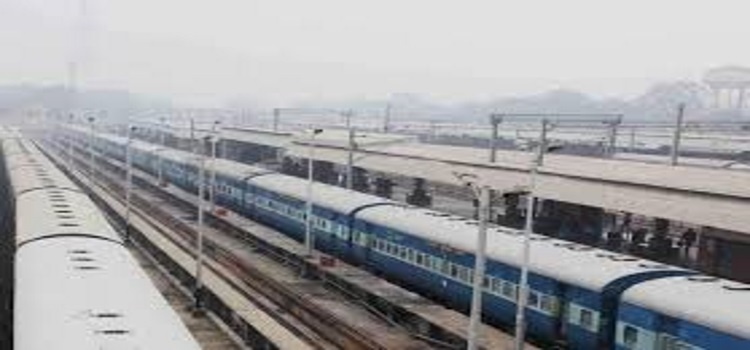
On this International Women’s Day, Indian Railways led from the front by showcasing capabilities and potential of what women of this country can achieve when given equal opportunities. Indian Railways showed its commitment by promoting its equal-opportunity employer and inclusive work culture.
In a unique endeavour to ensure women’s empowerment, Indian Railways appointed all-women staff at its suburban stations Matunga, Gandhinagar (Rajasthan), Govindpuri (UP), Chandragiri (Andhra Pradesh), Vidyanagar (Telangana), Maninagar (Gujarat) New Amaravati station (Maharashtra) and Ajni (Nagpur) stations to name a few. Indian Railways is leading by an example to empower women by training them to manage all operations at the stations which are managed by women staff. Gandhi Nagar railway station in Jaipur has become the country’s first and only major railway station run fully by all women staff – from ticket checker to station manager.
Mumbai’s Matunga railway station has become the first sub urban railway station in the country to be run by an all-woman staff, has already entered the Limca Book of Records 2018 for the rare feat. Matunga railway station will be operated by 31 women employees including station superintendent, booking clerks & security personnel. Chandragiri station in Andhra Pradesh is the first women operated station in the state. Maninagar in Gujarat became the first women operated station in the state.
In another instance, twenty women ‘ganged up’ in Guwahati for maintenance of railway coaches, the first time that women employees have come forward for the job in the history of Indian Railways. Surekha Yadav, the first railway driver in the country, is truly an inspiration for young girls in the country.
Several trains across Indian Railways were operated by women staff on the occasion of women’s day, Koyna Express, Deccan Express, Mumbai Ahmedabad Shatabdi Express, Ranchi Bici Tori Express, Howrah Digha Express, Dadadham Express, Gorakhpur Nautanva Express, Baramati Express, Sangamitra Express, Bhopal -Bilaspur Express were operated by all lady ticket checking staff.
It is noteworthy that Ms Manju Devi, coolie badge no. 15 at Jaipur station, who is the first female coolie on Indian Railways, was also honoured at the ‘First Ladies’ event by the Ministry of Women and Child Development. She Started working in March’13.
Shri Ashwani Lohani, Chairman, Railway Board met with women employees of PP yard, Bhilai during his visit to South East Central Railways. These lady employees are doing technical works for ROH of wagons. At PP yard total 32 lady employees, are working. Out of them, 18 are working in technical works like spring Inspection , gauging & calibration, operation of CNC wheel lathe, EOT crane operation, SAB over hauling, Distributor valve over hauling, super check of wagins in sick line etc.
On the occasion of International Women’s Day on 8th March 2018, Bengaluru Division by recognising the intrinsic role played by the Women employees, flagged off Tr. No.12295 Bengaluru – Dhanapur Sangamitra Express by Smt.Sakkamma, MCM from the Mechanical Dept.
Another noteworthy decision of Indian Railways to support women’s empowerment includes installation of sanitary napkin dispensers and incinerators at around 200 major railway stations across the country. The initiative will particularly help women employees and women of financially weaker sections of the society. The Railway Women Welfare Central Organization (RWWCO) also inaugurated a sanitary napkin dispenser and incinerator at Rail Bhavan on the occasion of Women’s day. Smt. Mithila Bouri, Ayah and senior most staff of ADRA Divisional Hospital, inaugurated the incinerator and sanitary napkin dispenser in the Female Medical Ward on International Women’s Day.
Apart from installing CCTV cameras at all railway stations, Indian Railways has been taking various other steps also to ensure the safety of women. To make women travellers feel safe & comfortable in trains, Railways have secured 6 seats in sleeper and AC classes exclusively for women
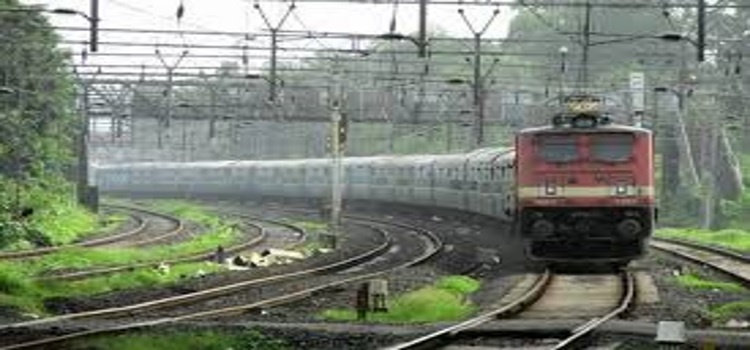
The South Western Railways has prepared a pre-feasibility report for the long-pending Bengaluru suburban railway, which envisages an investment of Rs. 12,000 crore for the 168-kilometer network, nearly half of which will be elevated, Railway Minister Piyush Goyal said.
He also announced that Indian Railways will invest Rs 75,000 crore on a signalling system project to be implemented across India.
“We will bring the most modern technology of European Train Control System in India and it will be implemented across the country. It will ensure safe journey,” he told reporters here Thursday evening.
He did not give further details for either project.
Goyal also said the Railways will invest Rs 5,000 crore for upgrading stations and bringing in the most modern locomotives rail coaches.
He said he had written to the Karnataka Chief Minister Siddaramaiah in January, proposing that the Railways and the state government share the cost of the upgradation equally, instead of letting Karnataka bear 80 per cent of the cost.
“We can do a cost sharing of 50-50 between the state government and the Indian railways and against that, they (state government) can allow us to increase the Floor Area Ratio or Floor Space Index of all our stations, so that we can raise some revenue by developing the stations, making them modern and passenger friendly”, he said.
Replying to a query on train punctuality, the minister said the delay in track renewal work was hampering the speed of trains. If a damaged track is not replaced, safety is compromised and speed restriction has to be imposed, slowing down trains, he said.
Earlier 233 km of tracks were renewed every month but in December 2017, railways did 476 km of track renewal, he said.
“In January, 2018, railways did 576 km of track renewal and in February we did 560 km … That is the scale-up to make the Indian Railways safer. With this, all the speed restriction will go away and we will have faster trains,” Goyal said.
When asked about the Railways’ stand on the controversial Thalessery-Mysuru railway line, he said, “I am given to understand that there is lot of opposition to this line because it passes through very, very eco-sensitive wildlife areas and environment can be damaged.”
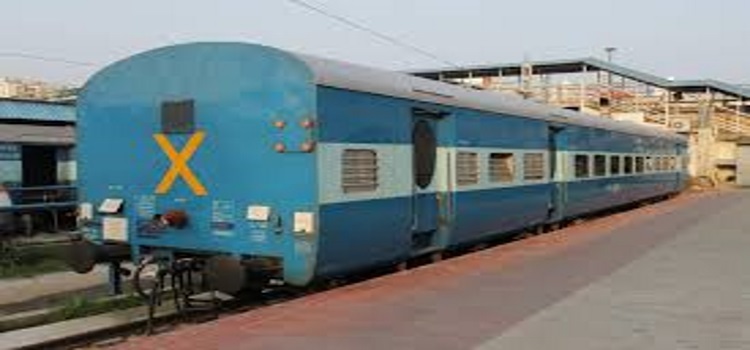
South Western Railways, on Thursday, announced eight new suburban train services, which will increase connectivity to the IT corridor and other parts of the city.
The services will be operated between Baiyappanahalli and Whitefield, Baiyappanahalli and Krantiveera Sangolli Rayanna Station, and Hosur and Banaswadi through Heelahalige. The Railways will deploy both MEMUs and DMUs for the operations.
Railway Minister Piyush Goyal reviewed the physical survey being conducted for a detailed feasibility report for the much-hyped Bengaluru suburban railway project. The Railways is using LiDAR (Light detection and ranging) technology through drones to prepare the report. A.K. Gupta, general manager of SWR, said it will take six months to complete the exercise.
Mechanised laundry
The Minister inaugurated a 10-tonne capacity mechanised laundry at KSR Bengaluru station. The new facility will be used to provide clean linens to passengers travelling from Bengaluru and Yeshwantpur stations.
Replying to a question on the proposed Thalaserry to Mysuru rail line, which is being opposed in Karnataka, especially in the Kodagu region, the Minister said the Railways can do a feasibility report only if the Karnataka government gives permission.